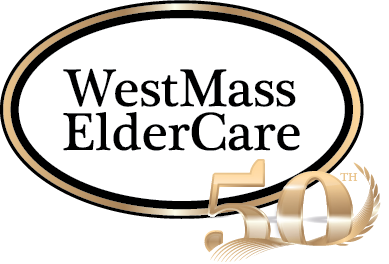Caregivers — Most of us are one or need one!
Celebrated every November, National Family Caregivers Month (NFCM) is a time to recognize and honor family caregivers across the country. It offers an opportunity to raise awareness of caregiving issues, educate communities, and increase support for caregivers everywhere. As the backbone of support for loved ones and friends who need assistance, caregivers go about their work quietly and enrich the lives of others in so many ways, adapting and flexing to meet their loved one’s changing needs. Some caregivers are part of a ‘team’ of support, while others are the primary person who takes care of all that needs to be done. While each situation is unique, all caregivers play a key role in promoting independence and preserving the quality of life for the person receiving care.
Caregiving is universal and will touch most of us during our lives. In 2019, at least 53 million people were providing informal, usually unpaid, care and support to aging family members and people of all ages with disabilities (including mental health conditions). At the same time, at least 2 .7 million grandparents—and an unknown number of other relative caregivers—carried the primary responsibility for caring for grandchildren whose parents were unable to do so. These numbers are increasing rapidly due to growing populations of older adults and people with disabilities; the long-standing shortage of direct care workers, which has reached crisis proportions during the pandemic; the continuing opioid crisis and other issues that are creating thousands of new “grandfamilies” each year, and a variety of other factors.
When family caregivers do not have training, support, and opportunities for rest and self-care, their own health, well-being, and quality of life suffer. Their financial future can also be put at risk—lost income due to family caregiving is estimated to be a staggering $522 billion each year. When family caregivers no longer can provide support, the people they care for often are left with no choice except moving to nursing homes and other institutions—the cost of which is typically borne by taxpayers —or to foster care. Supporting family caregivers has been an urgent public health issue for a number of years; the COVID-19 pandemic made it starkly visible, and national momentum to address it has surged.
Caregivers provide help in many ways. According to the 2022 National Strategy to Support Family Caregivers, below are some of the many ways that caregivers make a vital difference in the lives of the individuals they support:
- Older adults and people of all ages with all types of disabilities who may need assistance with bathing, toileting, dressing, and eating (also known as activities of daily living) or with things like grocery shopping and meal preparation, getting to doctor’s appointments, home maintenance, or managing multiple medicines.
- People with chronic health conditions—such as cancer, diabetes, and arthritis may need assistance navigating complex healthcare systems, managing symptoms and medication side effects, and maintaining their quality of life.
- Adults and children with intellectual and developmental disabilities (ID/DD) who may require assistance with ensuring that an individual’s basic needs are met, while their rights are respected and protected. They also may need assistance with accessing and coordinating the supports needed for health, well-being, independence, and opportunities for community inclusion, integrated employment, and self-determination, whether the individual with ID/DD is living with the family caregiver or in their own home. Parents and other family members of people with ID/DD often provide medical, behavioral, financial, and other daily supports beyond what most families provide, and they provide this assistance across the lifespan of the person with ID/DD.
- Children in the full-time care of relatives such as grandparents or close family friends may need special education, behavioral health services, and help to thrive due to previous adverse childhood experiences.
- Medically fragile children and adults who need round-the-clock care from a team that includes of family caregivers and skilled nursing professionals working in close concert.
- Older adults, who are affected by Alzheimer’s disease and related dementias (ADRD), including people with ID/DD, who require assistance with activities of daily living.
- Veterans with injuries and/or chronic conditions, including traumatic brain injuries, limb loss, and mental health issues like post-traumatic stress disorder (PTSD).
- People who live in nursing homes, board-and-care, assisted living facilities, and other residential care communities rely on family caregivers for assistance to maintain their health, safety, welfare, and well-being.
This month and every month, WMEC salutes the untold numbers of unsung caregiver heroes who support our loved ones, our consumers, and so many others in our community every day. For caregiver support and resources, including information about how to be paid for caregiving, contact WMEC at 413.538.9020 or info@wmeldercare.org. You are not alone – we are here for you!


